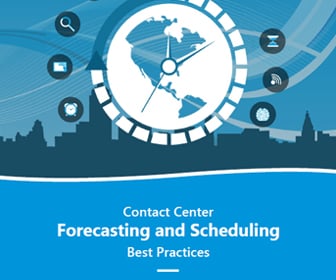Workforce Management Featured Article
AI and NLP Being Used to Improve Healthcare Customer Service

Healthcare providers are increasingly using artificial intelligence (AI) and natural language processing (NLP) to deal with rigorous customer service demands. The industry has traditionally been plagued with customer care issues and frustrated callers, leading organizations to turn to technology to better meet demands.
A recent survey from unified communications vendor 8x8 (News - Alert) showed 13 percent of healthcare industry calls were disconnected before the caller was routed to an agent, while an overwhelming 67 percent of callers hung up the phone out of frustration after not reaching a human.
Mounting caller angst and impatience has led many healthcare providers to automation technologies like voice recognition and AI-based speech recognition to help improve performance, reduce costs, strengthen their efficiencies, and improve the overall patient experience.
"Call centers have become a foundational element in customer service in many industries, and they play a central role in healthcare," said Nick Kagal, vice president of marketing and business development at customer engagement solutions company SpinSci. "Call management is critical to support patient needs, including scheduling, prescription refills, care questions, outbound communications and management of critical information."
"AI can't replace everything that a human agent can do, but it is often sufficient to reach a satisfactory resolution for simple requests," Kagal said. "Businesses can leave the routine, day-to-day questions (like password resets) to AI, freeing up human agents to respond to more complex calls and to deliver other operational efficiencies."
Another benefit of AI in the call center is its ability to automatically capture information for each customer interaction. Sentiment analysis of conversations can offer important insights about how callers feel about a brand, product or service. NLP and voice recognition enable call center agents to record and transcribe interactions, making it easy for supervisors to review customer interactions and pinpoint areas where agents may need to improve.
"One of the biggest ways that NLP assists with call center operations is by helping software programs to understand caller speech patterns and lines of thought," said Hagan. "This understanding enables these programs to do more accurate work in serving patients. It also helps contact center technology teams create more natural-sounding interactions in automated chats and instant messages."
Edited by Luke Bellos







